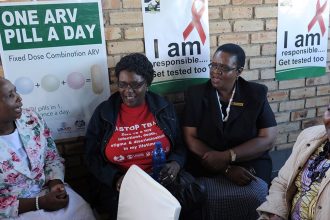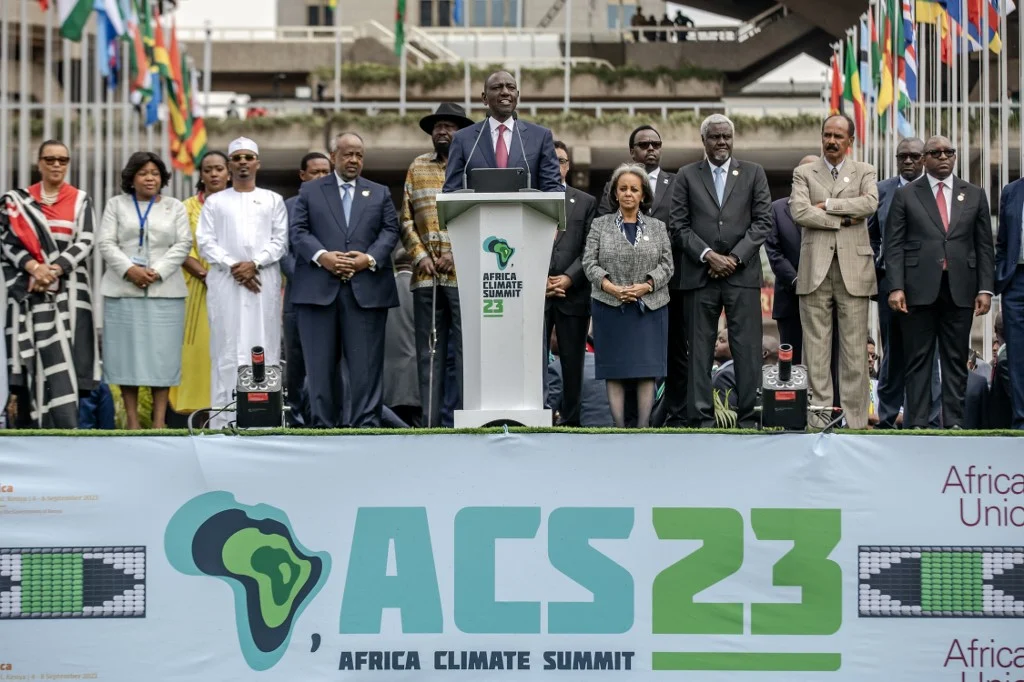As the Second Africa Climate Summit (ACS 2) prepares to open in Addis Ababa from 8 to 10 September 2025, growing concern is emerging among civil society organisations (CSOs) across Africa over the high costs charged to host side events.
Across the continent, grassroots and regional actors warn that steep fees and logistics expenses are erecting barriers to participation—and risking the exclusion of African‑led voices from critical climate debates that follow soon after.
In recent weeks, multiple CSOs from across the African region have voiced their concerns. The Consortium for Climate Change Alliances convened a preparatory forum in mid‑July, decry the stance taken by the Ethiopian officials who were publicly quoted saying that non‑state actors must contribute financially—and technically—to the Summit’s success.
Some sources say registration and side‑event hosting fees now range from USD 1,300 per session, with extra charges for audio‑visual packages, translation, and pavilion space. Grassroots groups say these sums are unmanageable for many of their members.
Voices from the field: youth and grassroots speak out
Pragmatic Social Actors, a coalition that brings together climate networks from Nairobi, Nigeria, and Zimbabwe, have characterized the fees as “untenable” for local actors.
A representative from Climate Alliances in Mali described the structure as “pay‑to‑play”, warning that major sums are funneled into infrastructure providers rather than local actors. Young climate activists—organized through national climate youth forums in Chad and Kenya—echo similar concerns: many are forced to scale down or cancel planned events, opting instead to hold informal meetings outside the Pavilion at public spaces and coffee shops.
Some youth leaders from Nairobi and Chad report that they must raise external funds or partner with foreign NGOs simply to cover the costs, dampening the youth‑led spirit that ACS2 has advertised.
Equity gap strains inclusion mandate
According to CSO actors, the Summit’s broader vision is to “amplify African voices” and ensure “generation‑and gender‑diverse” participation across plenaries, roundtables, and side‑events may not materialize, given that most of them are now struggling since President Trump removed focus on climate change. Critics say the rising costs contradict this vision.
In Mali for example, the Climate Network Mali conducted outreach among local NGOs, many of which operate on annual budgets under USD 10,000. Mohammed Idriss, a coordinator lamented that to host a 60‑minute side event in Addis would cost “a large chunk of our annual budget.”
The Climate Alliance Zimbabwe reports that although members are eager to share drought‑resilience practices, they can’t find funds to register—translating into silenced voices in policy spaces.
In Nigeria, Youth and women‑led networks there underscore the irony: Nigeria is a major oil‑producer with growing youth climate activism, yet their events are sidelined because they can’t afford hosting fees.
Local youth forums in Chad meanwhile, explained that even covering translation costs (Arabic/French/English) is a challenge—not to mention pavilion space. According to Daniel Okeyo from the Pragmatic Social Actors based in Nairobi, the regional network risk sending only a minimal delegation because of escalating fees, citing in‑country inflation and elevated costs for travel and logistics as compounding factors.
Broader CSO context: echoes of ACS¹ tensions
These complaints resonate with earlier critiques from the inaugural Africa Climate Summit (ACS¹) held in Nairobi in September 2023. Over 500 African CSOs submitted a petition calling to “Make the Africa Climate Summit African,” warning that corporate interests and Global‑North think‑tanks had hijacked the agenda—marginalizing African-led voices and undermining Africa‑specific priorities like smallholder agriculture, food systems, and fossil fuel phase‑out.
CSOs fear the same pattern is repeating in ACS2—not only in agenda setting, but in access. They warn that where expensive access barriers exist, African grassroots ownership diminishes.
To date, the AUC and Ethiopian hosts have not issued an official statement acknowledging the fee concerns raised by CSOs. However, internal documents seen by some groups indicate that discussions are underway to release a limited waiver or subsidy mechanism, particularly for youth‑led events or for proposals from least‑developed countries. It remains to be seen if such measures will materialize before side‑event registration closes.
Why inclusion matters
CSOs emphasise that side events have real significance. “They are where innovations, youth voices, gender-sensitive strategies, and community‑driven solutions take centre stage—often away from high‑level plenaries. Excluding them risks reducing ACS2 to a technocratic and elite gathering, rather than a participatory platform”.
Youth forums, in particular, say that their credibility rests on speaking directly at such forums—addressing climate resilience, food sovereignty, and justice dimensions—which are seldom central at plenary sessions dominated by heads of state or big international institutions.
What’s at stake for ACS2
If the Summit does not adapt, CSOs warn, ACS2 risks repeating the shortcomings of Nairobi that was accused of reinforcing inequality in global climate governance, where actors with deeper pockets gain visibility. In addition, they noted that if the costs are not rescinded, the Summit risks crowding out African-led content, which Summit planners say they want to amplify under the theme “Accelerating Global Climate Solutions: Financing for Africa’s Resilient and Green Development”.
CSOs are calling urgently for last‑minute revisions—ideally via a published addendum reducing fees or launching a solidarity fund.
Their message is clear, “if Africa’s climate summit is to be African‑owned and inclusive, it must address both symbolic representation and structural access. That means shifting real resources, not only rhetoric,” noted Maxillah Mfundika from Zimbabwe.




